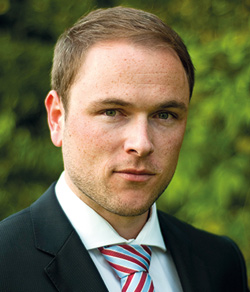Surface bioactivation of titanium-zirconium dental implants
The present thesis deals with the application of bone growth promoting biomolecules to commercially available implant surfaces by electrochemical treatment. The hypothesis was that bioactive molecules could improve cell response and bone formation around the implant.
The study was designed to examine the applicability of combining the properties of the statin simvastatin and the antibiotic doxycycline with titanium based dental implants to apply their beneficial effects locally and achieve maximum treatment efficiency.
The study especially demonstrated the efficiency of the process of coating a TiZr implant surface with doxycycline as it was possible to verify the integrity of the molecule on the surface and show its integration into the outer layer of the coin surface. In addition, the in vitro results demonstrated enhanced bioactivity and good bioavailability of the doxycycline coated surfaces after 14 days in comparison to TiZr SBAE, without negative effects on cell viability. Furthermore, doxycycline coated coin surfaces had positive effects on bone formation markers in vivo after 8 weeks of healing time. Higher BMD values and total bone volume were detected in -CT after 8 weeks in the doxycycline coated group and showed that the defect healing was most advanced. Therefore, it was concluded that doxycycline coated surfaces positively influenced cell response and bone formation both in vitro and in vivo. The surface holds potential for the application on hard tissue implants in patients with compromised bone structure.
Personalia

Personalia
Martin S. Walter defended the dissertation «Surface Bioactivation of Titanium-Zirconium Dental Implants» for the degree PhD/Dr.Ing. 22nd of August 2013 at the Faculty of Dentistry, University of Oslo. Supervisors were professor Janne Reeseland, professor Ståle Petter Lyngstadaas and associate professor Håvard J. Haugen, Department of Biomaterials, Institute of Clinical Dentistry, University of Oslo.